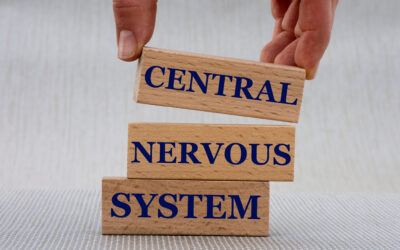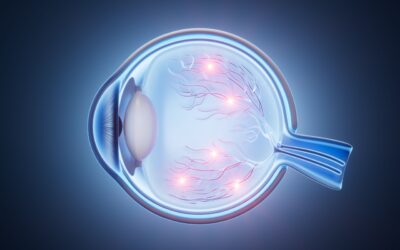Engaging the right partners at the right time is essential to drug developers and the success of their compound. We sat down with Grace Furman, small-molecule toxicology consultant at Paracelsus, Inc., to get her perspective on some of the most pressing challenges and roadblocks drug developers face when preparing their nonclinical safety programs.
What are some of the challenges you see when small-molecule developers are preparing for nonclinical safety studies?
Furman: By far, the biggest challenge is an unrealistic development program and associated timeline. Many of my clients might think they’re ready to proceed, but they haven’t planned appropriately and are therefore set up for failure right out of the gate. Most of the time, this failure to plan properly is simply due to inexperience.
Clients may be amazingly sharp and well-funded drug discovery professionals, but drug development is a different game entirely. I always warn my less experienced clients that it’s going to take more test article, time and money than they’re anticipating. To avoid false starts and stops, I encourage them to engage an experienced toxicology consultant early in the planning process to develop programs and timelines with success in mind. While it’s not possible to anticipate every potential issue that may arise during a development program, having a realistic plan is the best way to ensure that you will meet your development goals and milestones.
What do small molecule developers need to do regarding toxicology that differs from biologics and cell/gene therapies?
Furman: Nonclinical safety strategies for small molecule and biologic therapies differ in several important aspects. Even within the small molecule field, different approaches are taken for oncology and non-oncology indications to ensure that promising new medicines are available as quickly as possible to patients with advanced cancer who have exhausted all available therapeutic options.
Small molecule nonclinical safety programs can include general toxicology studies, genotoxicity studies, safety pharmacology studies, reproductive and developmental toxicity studies and carcinogenicity studies. In addition, studies specific to safety qualification of metabolites as well as impurities or degradants may also be warranted for small molecules.
Most biologics are highly-targeted molecules (toxicity is most often a result of exaggerated pharmacology) that are degraded in vivo. Small molecules – even those intended to be target-selective – often have off-target effects or toxicities and could form one or more metabolites in vivo that may (or may not) be relevant to human risk. Some toxicology consultants can offer expertise specific to small molecules or biologics; other toxicology consultants may claim expertise in both areas. You’ll want to ensure that you choose a consulting toxicologist whose subject matter expertise and development experience are a good fit for your development program.
What advice would you give drug developers that are concerned about their program timeline?
Furman: De-risk the program as early as possible by addressing any potential “show-stoppers” sooner versus later. For instance, when developing a small molecule for a non-oncology indication, genotoxicity data are essential to an Investigational New Drug (IND)-enabling program. You want to know as soon as possible if you are going to encounter unexpected genotoxicity in your development program. High throughput screening assays can sometimes be poor predictors of full-scale regulatory assays, and positive or equivocal genotoxicity results can stop a program in its tracks.
Another way to make sure your program moves along smoothly is to ensure that you have an appropriate formulation for your in vivo toxicology studies. Unlike most pharmacology and pharmacokinetic studies, toxicology studies are dosed at toxicologically-relevant dosage levels – sometimes up to 1000 mg/kg/day. Therefore, dosing formulations capable of delivering those high dosage levels must be available before any in vivo work can begin. Developing these formulations can be challenging if your clinical candidate isn’t very water-soluble. This can be especially challenging if your molecule will be administered parenterally (e.g., intravenously) in humans, as this will also have to be the route of administration used in your in vivo toxicology studies.
Again, the best way to feel comfortable about your program timeline is to engage an experienced toxicology consultant early in the planning process so that you can develop a realistic timeline right from the beginning.
Selecting metabolically relevant species is critical for successful small molecule development. How would you guide drug developers nearing this point?
Furman: Yes, for small molecule programs – both oncology and non-oncology – the rodent and nonrodent toxicology species must be metabolically-relevant so that the data generated in these species are appropriate for human risk assessment.
In the small molecule world, metabolites are an important consideration. Even metabolites that are known to be pharmacologically inactive can be toxicologically active. The best way to justify the selection of metabolically-relevant species when embarking on a toxicology program is to do a complete set of cross-species in vitro metabolic profiling studies. A complementary cross-species plasma protein binding study is also in selecting appropriate toxicology species. Once in vivo toxicology studies begin, metabolite profiling can be done as part of dose range-finding toxicity studies to confirm the metabolite profiles observed in vitro.
How does a toxicology consultant provide unique value during a nonclinical safety testing program?
Furman: An experienced toxicology consultant will be a well-versed drug development professional who can help companies design nonclinical safety testing strategies that will meet all corporate, scientific and regulatory expectations. An experienced toxicology consultant can:
- Integrate into your drug development team by working collaboratively across disciplines to ensure that your nonclinical safety program will support the planned clinical development and registration milestones with no unexpected delays or issues
- Plan ahead of the present stage of development to ensure their clients are aware of and prepared for studies to support future development milestones
- Assume full responsibility for all aspects of your nonclinical safety program, including the routine day-to-day management of studies, interpretation and summarization of results, and drafting text for submission-level documents
- Answer all nonclinical safety-related questions in an informative and respectful manner
- Be efficient in their work, delivering high-quality value in a timely and complete manner
What are important attributes to consider when choosing a laboratory testing partner?
Furman: When considering a laboratory testing partner for your drug development program, resist the urge to focus on cost and speed. Quality and experience are equally as important, if not more so. One thing I’ve learned over my years as a consultant is clients that don’t have the time, test article and money to do it right the first time somehow always manage to find the time, test article and money to do it right the second time…
An important thing to remember is that once you generate toxicology data, it never goes away. “Bad” toxicology data becomes “baggage” that gets dragged around with a molecule forever. This can result in additional toxicology studies being necessary as the molecule moves through development, possibly limiting partnering potential and decreasing the asset’s overall value. Your toxicology laboratory testing partner will be your development partner. Quality and experience are vital factors to look for when considering this important partnership!
Learn more about Paracelsus, Inc on their website.
Discover WuXi AppTec’s safety assessment services or contact an expert today.
As a global company with operations across Asia, Europe, and North America, WuXi AppTec provides a broad portfolio of R&D and manufacturing services that enable the global pharmaceutical and life sciences industry to advance discoveries and deliver groundbreaking treatments to patients. Through its unique business models, WuXi AppTec’s integrated, end-to-end services include chemistry drug CRDMO (Contract Research, Development and Manufacturing Organization), biology discovery, preclinical testing and clinical research services, helping customers improve the productivity of advancing healthcare products through cost-effective and efficient solutions. WuXi AppTec received an AA ESG rating from MSCI for the fourth consecutive year in 2024 and its open-access platform is enabling around 6,000 customers from over 30 countries to improve the health of those in need – and to realize the vision that “every drug can be made and every disease can be treated.”


